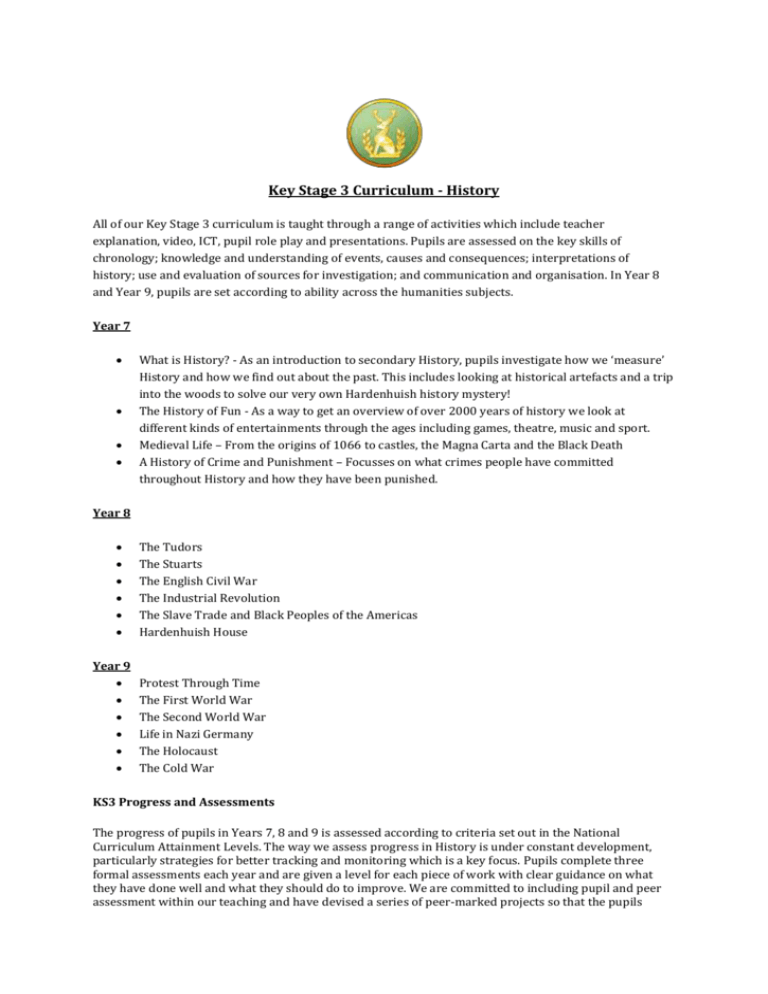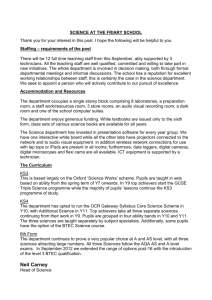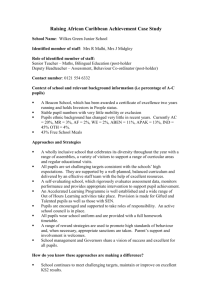KS3 History Curriculum
advertisement

Key Stage 3 Curriculum - History All of our Key Stage 3 curriculum is taught through a range of activities which include teacher explanation, video, ICT, pupil role play and presentations. Pupils are assessed on the key skills of chronology; knowledge and understanding of events, causes and consequences; interpretations of history; use and evaluation of sources for investigation; and communication and organisation. In Year 8 and Year 9, pupils are set according to ability across the humanities subjects. Year 7 What is History? - As an introduction to secondary History, pupils investigate how we ‘measure’ History and how we find out about the past. This includes looking at historical artefacts and a trip into the woods to solve our very own Hardenhuish history mystery! The History of Fun - As a way to get an overview of over 2000 years of history we look at different kinds of entertainments through the ages including games, theatre, music and sport. Medieval Life – From the origins of 1066 to castles, the Magna Carta and the Black Death A History of Crime and Punishment – Focusses on what crimes people have committed throughout History and how they have been punished. Year 8 Year 9 The Tudors The Stuarts The English Civil War The Industrial Revolution The Slave Trade and Black Peoples of the Americas Hardenhuish House Protest Through Time The First World War The Second World War Life in Nazi Germany The Holocaust The Cold War KS3 Progress and Assessments The progress of pupils in Years 7, 8 and 9 is assessed according to criteria set out in the National Curriculum Attainment Levels. The way we assess progress in History is under constant development, particularly strategies for better tracking and monitoring which is a key focus. Pupils complete three formal assessments each year and are given a level for each piece of work with clear guidance on what they have done well and what they should do to improve. We are committed to including pupil and peer assessment within our teaching and have devised a series of peer-marked projects so that the pupils themselves have the opportunity to mark both their own work, and the work of their classmates. Assessment of on-going class work takes place at least once a term (6 times a year). Teachers mark exercise books and homework, commenting on what has been done well and setting targets for pupils to work towards.


![afl_mat[1]](http://s2.studylib.net/store/data/005387843_1-8371eaaba182de7da429cb4369cd28fc-300x300.png)








